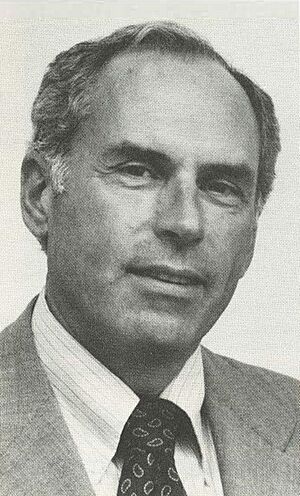Roy Amara facts for kids
Quick facts for kids
Roy Amara
|
|
|---|---|

Amara circa 1980
|
|
| Born |
Roy Charles Amara
7 April 1925 |
| Died | 31 December 2007 (aged 82) |
| Nationality | American |
| Education | MIT, Harvard, Stanford |
| Alma mater | Stanford |
| Known for | Amara's law |
| Spouse(s) |
Margaret Frances Terestre
(m. 1949) |
| Children | 3 |
| Scientific career | |
| Fields | Futurism |
| Institutions | SRI International, IFTF |
Roy Charles Amara (born April 7, 1925 – died December 31, 2007) was an American scientist and researcher. He was also a futurist, which means he studied and thought about how the future might unfold.
Roy Amara was the president of the Institute for the Future. He is most famous for creating something called "Amara's Law," which talks about how we often think about new technology. He studied at important universities like MIT, Harvard, and Stanford.
What is Amara's Law?
Roy Amara came up with a famous idea about how people react to new technologies. This idea is now known as Amara's Law. It says:
We tend to overestimate the effect of a technology in the short run and underestimate the effect in the long run.
This means that when a new technology first appears, people often think it will change everything very quickly. But in reality, it takes time for big changes to happen.
However, over a long period, the technology might have a much bigger impact than anyone first thought. For example, when the internet first came out, some people might have thought it would instantly change everything. But its true, massive impact on how we live, learn, and communicate took many years to fully develop.
Amara's Law has been used to explain how new fields like nanotechnology (which deals with extremely tiny things) develop over time.
 | Isaac Myers |
 | D. Hamilton Jackson |
 | A. Philip Randolph |

